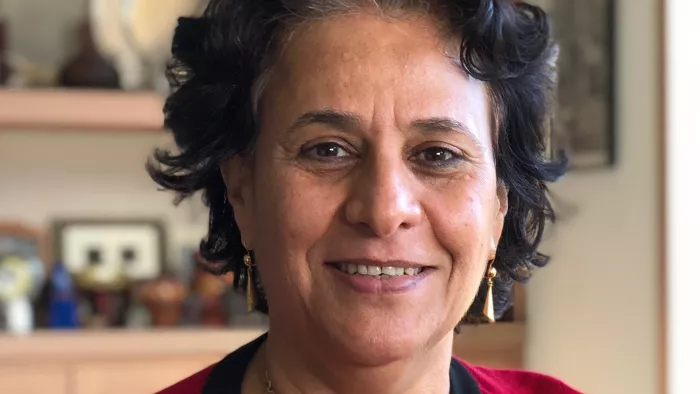
Special mention: Brave
Aisha Jumaan, Yemen Relief and Construction Foundation
You were nominated in the category of brave. Can you tell us more about your work in this area?
I established Yemen Relief and Reconstruction Foundation (YRRF) in response to the humanitarian crisis in Yemen. When the war broke out in 2015, I started sending personal funds to trusted contacts to provide relief to those most in need; then family and friends also started sending me contributions for Yemen. Since I viewed the war as temporary at the time, this small-scale casual system seemed practical. However, as the war continued and the humanitarian crisis became more severe, it was clear that we needed a systematic way to support vulnerable Yemenis. Thus, in August of 2017, YRRF was registered.
What challenges have you faced? Have there been any solutions that worked particularly well?
Working in a conflict setting is particularly challenging. We prioritise areas in Yemen that are experiencing hardship and are difficult to access due to geography and security. We decided to work with trusted locals in these areas to ensure access. We also purchase locally to save on transportation cost, avoid check points, and support local economies.
Where do you see your work going next?
Our work started with distribution of food baskets. We now cover a wide range of areas including education, water, medicine, income generation, orphans’ financial support, and COVID-19 response. Our next new initiatives include psychological counselling, especially for children, and working with youth on acceptance of the other based on Islamic teaching. Once the war is over, we hope to support the reconstruction phase, especially in the fields of health and education.
Why is this work so important to you?
The work that we do in Yemen is essential and allows us to severe people who are experiencing the world largest humanitarian crisis. I was born and raised in Yemen where I learned very early on the value of community and service. YRRF work is an opportunity to give back to the kind and generous people of Yemen. It is also an opportunity to let the people in Yemen know that they are not forgotten, and that this act of kindness will reduce the psychological burden of the family and instil hope in their fellow humans.
What changes to the humanitarian sector are needed in the next 10 years? What are the main obstacles to achieving this?
The level of need when it comes to humanitarian crises, whether it be the number of humanitarian crises or the number of people who need support, is increasing beyond the ability of the current systems. Obstacles to humanitarian work will include funding, access and constraints, and security. Therefore, it is important for humanitarian organisations to work with local communities and develop local solutions. Understanding the local context is key to developing strategies. There are general principles that apply, but what works in one area within the same country, may not work in another. Working with leaders who are trusted by locals can open doors; it will also help identify those most in need. Including women in the decision-making process of humanitarian work is also essential as women are typically the care givers in communities, especially ones experiencing humanitarian crises.
2020 has presented multiple challenges globally. What are the key lessons for the humanitarian sector this year?
The world is connected. Events in one country impacts other countries. Therefore, we need to ensure that countries with low resources are supported. We need to take care of our environment; our solutions need to consider our environment. Human interaction is crucial; thus, it is important to be kind to one another.
Why do you think that in an era when we have more access and communications, crises have increased in numbers and gravity?
We hear more about crises due to technological advances and global integration. While these are important milestones for humanity, they come with new challenges. The ease of spreading inaccurate information has helped the rise of authoritative leaders and a backlash against globalisation. As countries with power/money fight over control in new arenas, the world is further polarised.
Why is important to transform the sector and if there is one thing that you would encourage your fellow humanitarians to do, what would it be?
We have more crises and resources are not available to meet our current and future needs.
Listen to local voices and make sure that the populations we serve have a seat at the table. They know their needs, environment, and dynamics better than we do. Thus, we must empower local communities to address their own needs.
